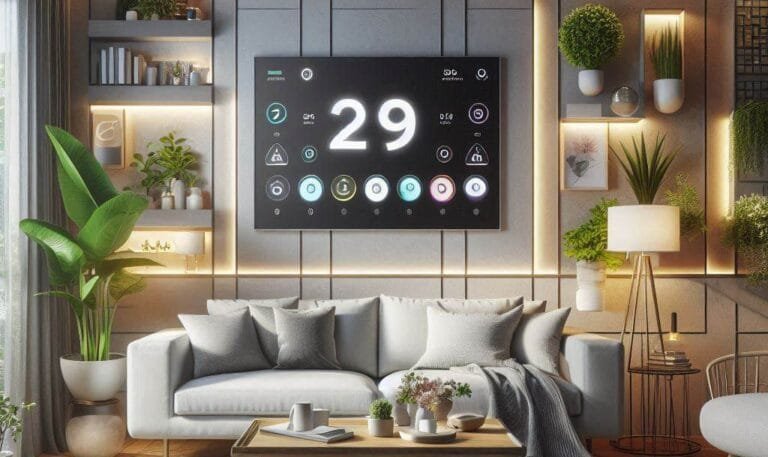When we talk about computers, we typically refer to desktop computers, which are the traditional tower setups that usually come with a separate monitor, keyboard, and mouse. They offer a large screen real estate and powerful components, making them excellent for various tasks, from gaming to graphic design.
On the other hand, laptops are compact, portable machines that combine all components into one unit. They come with built-in screens, keyboards, and batteries, making them perfect for users on the move. You can work at a coffee shop or browse the internet while lounging on your couch—what’s not to love?
The Evolution of Personal Computing
Let’s take a quick trip down memory lane. The early days of computing saw bulky machines that took up entire rooms. Over the years, technology has advanced dramatically, leading to the creation of personal computers in the 1980s, which were a game-changer for home and office use.
Laptops began to emerge in the 1990s, captivating users with their portability. Today, whether it’s a powerful desktop or a sleek laptop, each has its own place in our lives, evolving alongside our needs.
The Importance of Making an Informed Decision
Choosing between a computer and a laptop isn’t just about features; it’s essential to evaluate your personal needs. Do you need to run resource-intensive software for work, or do you simply need something for browsing?
Cost consideration also plays a big role. Laptops may have a higher upfront cost but could save you money in the long run if you don’t need to invest in additional equipment. Budget planning will ensure that you get what fits your financial situation without compromising your needs.
Performance: Comparing Power and Capability
Hardware Specifications
When it comes to hardware, desktop computers often have an edge over laptops. They usually have more powerful processors and can support larger amounts of RAM and storage. This means that for everyday tasks and demanding applications alike, desktops often provide superior performance.
However, laptops are catching up, especially with the latest technology. High-end models can offer impressive specs that cater to a wide range of user demands.
Graphics and Gaming Performance
If you’re into gaming or creative work that relies on graphics, this section is crucial. Desktop computers often come with dedicated graphics cards, which enhance gaming performance and graphic rendering capabilities.
Laptops, meanwhile, may have integrated graphics or entry-level dedicated options. While many laptops can handle casual gaming, if you’re serious about high performance, desktops are generally the way to go.
Multi-Tasking and Workflow Efficiency
Working with office applications can be smooth on both devices, but if you’re multitasking or using demanding software like video editing programs, desktops often provide better workflow efficiency. Their superior hardware allows for seamless switching between programs, reducing lag and improving productivity.
Portability: The Role of Mobility in Computing
Weight and Size Considerations
Weight and size are significant advantages of laptops. You can easily carry a lightweight laptop in a backpack or case without feeling weighed down. In contrast, desktop setups can be quite bulky, requiring dedicated space that may not be practical for everyone.
Usage Scenarios: Home vs. On-the-Go
Consider your lifestyle. If you’re often on the go—whether it’s commuting to work or traveling for leisure—a laptop is a practical option. However, if you mostly work from home or have a dedicated office space, a desktop may suit you perfectly.
Battery Life and Power Management
Laptops typically offer the convenience of battery power, allowing you to work anywhere without being tethered to an outlet. Most modern laptops can last anywhere from 6 to 12 hours, depending on usage. Desktops, on the other hand, require constant power and can consume more energy overall.
Cost: Evaluating Investment and Value
Initial Purchase Costs
The price range for desktops and laptops can vary widely. Generally, you’ll find that laptops may have higher initial costs for comparable hardware. However, desktop components can often be upgraded over time, which may prove cost-effective in the long run.
Long-Term Maintenance and Upgrades
Desktops allow for easy upgrades; you can simply replace or add components like RAM or a graphics card. This can save money over time as your needs grow. Laptops, due to their compact nature, have limited upgrade capabilities, and repairs can be tricky, often requiring professional assistance.
Resale Value and Depreciation
When selling your device later, desktops can have a slightly better resale value, especially if kept up-to-date with upgrades. Laptops may depreciate faster, influenced heavily by new models and technology trends.
User Experience: Comfort and Usability
Keyboard and Display Ergonomics
Using a large external monitor and keyboard with a desktop can provide a more ergonomic and comfortable work environment compared to working on a laptop keyboard. The screen size on desktops can significantly improve the overall experience, especially for those doing visual work.
Software Compatibility and Customization
Desktops generally offer greater software compatibility and customization options. You can tailor the system to your specific needs more easily. Laptops can be limited in this regard, especially concerning certain software applications or modification of settings.
User Demographics and Preferences
Different users have distinct needs. Students often prefer laptops for their portability, enabling them to study anywhere. Professionals working primarily in an office setting may benefit from a desktop setup. Gamers frequently gravitate toward desktops for performance, while casual users might find laptops sufficient for their needs.
Conclusion: Which One is Right for You?
Choosing between a desktop computer and a laptop boils down to your personal requirements, lifestyle, and budget. Each device has its pros and cons, so consider what aligns best with your everyday activities and long-term goals. Remember, it’s not about which is better overall; it’s about which is better for **you**.
FAQs
Can I play games on a laptop?
Yes, but the experience depends on the laptop’s specifications. Gaming laptops can handle most games, though you might want a desktop for higher performance needs.
Is it possible to upgrade a laptop?
Upgrading a laptop is limited compared to desktops. You might be able to upgrade RAM or storage, but most internal components are fixed.
What are the best use cases for each device?
Desktops are great for gaming, creative tasks, and office work, while laptops excel in portability, making them ideal for students and professionals who travel.
How do I determine the right specifications for my needs?
Identify what tasks you’ll be performing regularly, and look for devices that excel in those areas—be it gaming, office applications, or content creation.










